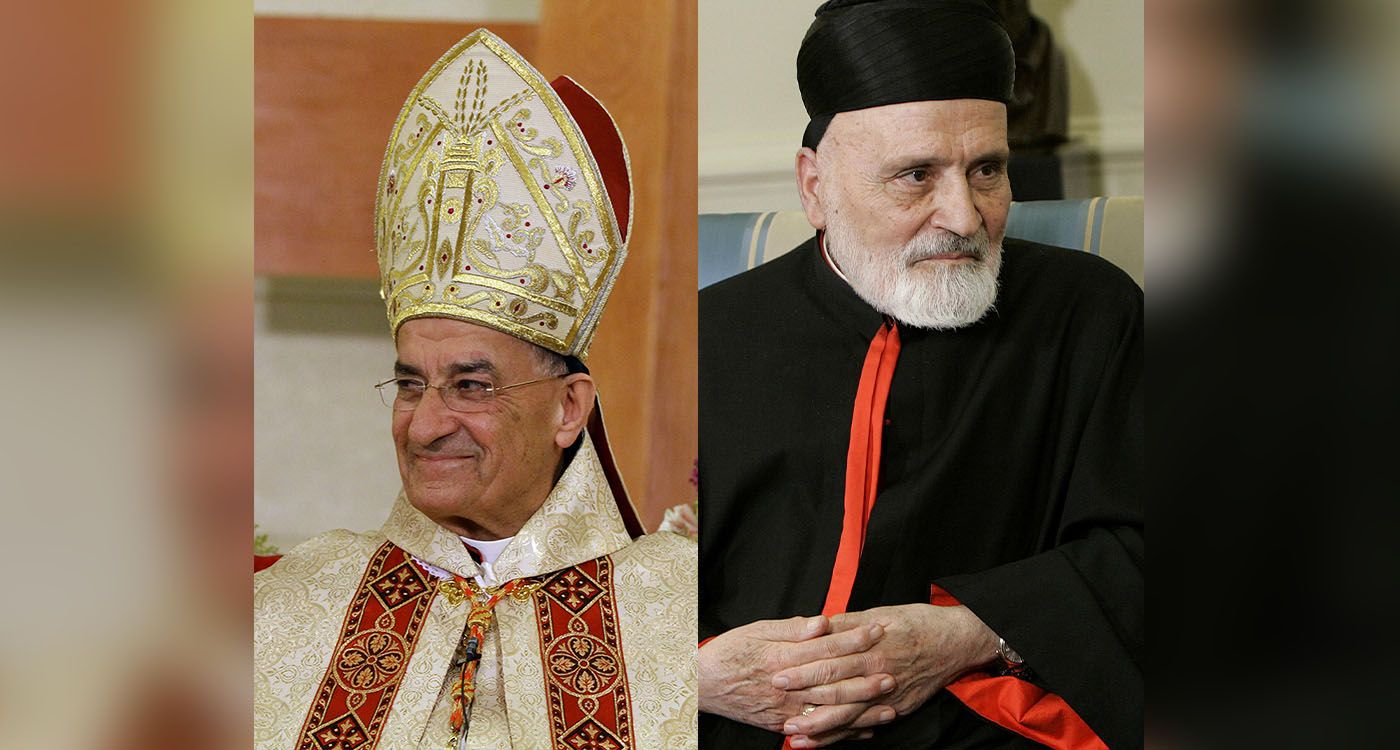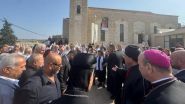
It has been 14 years since Patriarch Bechara Rai assumed the seat of the Maronite Patriarchate, as he was elected on March 15, 2011 – shortly after the popular uprising against Bashar al-Assad’s bloody regime erupted in Syria. Rai succeeded Patriarch Nasrallah Sfeir, who had resigned that same year, a month before Rai’s election. Sfeir had succeeded Patriarch Antonios Khreich in 1986 following the latter’s resignation. Sfeir held his position the longest, serving as patriarch for 25 years, until the age of 91.
The late Patriarch Sfeir was known for his firm and public stances against Syria’s tutelage over Lebanon, the presence of illegal weapons and Hezbollah’s dual authority. In contrast, Patriarch Rai pursued a policy of openness to all parties and across all directions.
While Patriarch Sfeir boycotted the Syrian regime and never visited Syria – even refusing to accompany the Pope to Damascus in 2001 – Rai visited Syria two years after his election, justifying the trip as a “prayer for a warn-torn country.” Later, he clashed with Hezbollah, which condemned his visit to Jerusalem in 2014. That visit was made on the occasion of Pope Francis’s trip to the Holy Land, a year after the Pope’s election in 2013.
During this period, Rai emphasized Lebanon’s positive neutrality, calling for an international conference to support this stance. He organized a large popular gathering in front of Bkerke in 2017 in support of this proposal. However, he somewhat retreated during Michel Aoun’s six-year presidency. While he did not oppose Aoun, there was no real harmony between them. In recent years, during the presidential vacuum, Rai has strongly reiterated the importance of Lebanon’s neutrality and the urgent need to elect a president.
At the ecclesiastical level, Rai did not undertake significant institutional reforms or modernize the administrative structures of Bkerke, as the Vatican had hoped. This issue did not seem to be a priority for the former head of the Congregation for the Eastern Churches, Argentine Cardinal Leonardo Sandri, who played a key role in Rai’s selection as patriarch. His only notable organizational reform was regulating media presence in Bkerke, restricting all communications to the patriarch’s spokesperson. Meanwhile, the monthly meeting of the Council of Bishops continued, with their numbers increasing under Rai’s tenure.
Additionally, the Church’s parishes and its social and educational institutions remained unchanged. The patriarchate largely maintained its traditional structure, struggling to meet the needs of all those who rely on it and to cover the high costs of its schools.
Furthermore, the patriarch’s health no longer allows him to fully carry out his numerous and diverse responsibilities. He remains the “sole conductor” in an institution increasingly disconnected from its followers – many of whom are seeking their future abroad. Meanwhile, the bishops appear to circle around themselves, waiting for a position to become available.
Will Rai, now 85, be able to participate in the important Synod of Bishops at the Vatican next June? And is the Vatican making preparations for potential changes?



Comments